A creative and transformative campaign to reduce food waste
Food waste is one of the biggest social and environmental challenges we face as a society. Every day, food that is still safe and nutritious is thrown away, while many families struggle to ensure they have adequate food.
At the Food Bank of the Girona Regions, we work not only to redistribute surpluses and respond to immediate needs but also to raise awareness of a more appropriate, fairer and more respectful use of food with the planet’s resources.
According to official data from the Generalitat de Catalunya, each resident of Girona throws away 21.6KG of food per year, which is equivalent to €112 per person.
A creative and transformative campaign to reduce food waste
What does the campaign consist of?
GOOD PROFIT! is an awareness campaign by the Food Bank of the Girona Regions that aims to raise awareness among citizens about the importance of reducing food waste.
And the fact is that, every day, in every household in the country, food is wasted for multiple reasons: leftovers that have gone unnoticed in the fridge, misunderstood concepts over time around the expiration date or simply not having enough tools to know what to do with the range of products that have accumulated throughout the week.
Through guides, recipes, workshops, games, and actions in markets and streets, BON PROFIT! Wants to demonstrate that taking advantage is smart, fun, and delicious.
The campaign is based on four axes:
- Delicious,
- practical,
- funny
- and pedagogical.
We teach you how an imperfect apple can become a cake, or how yogurt past its best-before date can be the perfect ingredient for making natural ice cream, because best-before date does not mean expiration date.
Let's break myths!
Many foods that are thrown away because of appearance or a misunderstood date are still delicious and safe.
We want to change the perception of imperfect foods and show that making the most of them is creative and intelligent.
It's not imperfect, it's usable.
Take advantage....

The Fish

The Vegetables

The Meat

The Dairy

The fruit

Bread, rice and pasta
Trucs i idees per donar una segona vida al teu menjar
What can I do to reduce waste?

1.
Plan the purchase.
Make a list before you go shopping and adapt the quantity to your real needs. Avoid unnecessary purchases, such as offers that you don't need.

2.
Buy whole pieces.
Foods such as cheeses or sausages are best preserved in whole pieces.

3.
Make a suitable transport of the purchase
Transport refrigerated and frozen products in insulated bags to avoid breaking the cold chain.
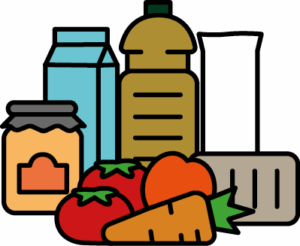
4.
Store food correctly.
Tidy up your fridge and pantry: you'll extend the shelf life of products and you'll avoid forgetting them. Put the food that has been stored and those that are about to expire at the front.

5.
Respect the dates, but with discretion.
"Best before" does not mean expiration date and many foods are still suitable after this date.

6.
Freeze some foods to preserve them longer.
For example, foods that you don't need to consume immediately or leftovers from a meal. You can use them later.
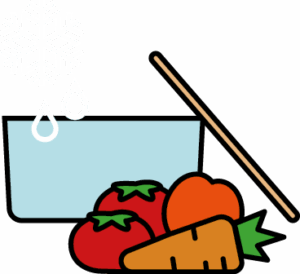
7.
Defrost only what you need to consume.
Freeze food in individual portions so you can defrost only what you need. Remember that once a food has been defrosted, it cannot be refrozen.
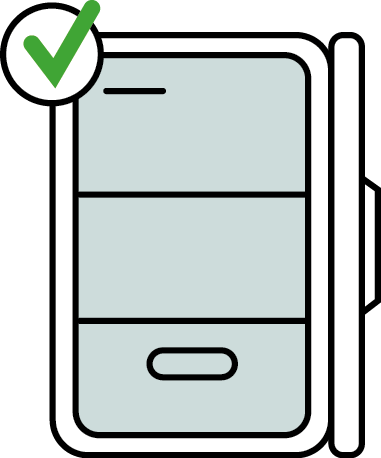
8.
Check the pantry and refrigerator often.
Knowing what you have at home helps you prioritize consumption and prevents it from going to waste.
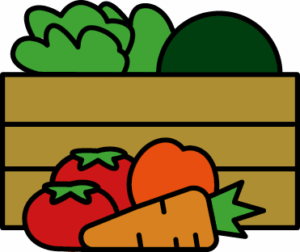
9.
Choose seasonal, organic and local products.
They are of higher quality and run less risk of being damaged.
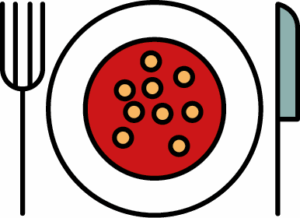
10.
Practice sustainable cooking.
Many traditional recipes such as cannelloni, paella or gazpacho were made to use leftovers. Below we give you some ideas.
Què puc fer per reduir el malbaratament?

1.
Plan the purchase.
Make a list before you go shopping and adapt the quantity to your real needs. Avoid unnecessary purchases, such as offers that you don't need.

2.
Buy whole pieces.
Foods such as cheeses or sausages are best preserved in whole pieces.

3.
Make a suitable transport of the purchase
Transport refrigerated and frozen products in insulated bags so as not to break the cold chain.

4.
Store food correctly.
Tidy up your fridge and pantry: you'll extend the shelf life of products and you'll avoid forgetting them. Put the food that has been stored and those that are about to expire at the front.

5.
Respect the dates, but with discretion.
"Best before" does not mean expiration date and many foods are still suitable after this date.

6.
Freeze some foods to preserve them longer.
For example, foods that you don't need to consume immediately or leftovers from a meal. You can use them later.

7.
Defrost only what you need to consume.
Freeze food in individual portions so you can defrost only what you need. Remember that once a food has been defrosted, it cannot be refrozen.

8.
Check the pantry and refrigerator often.
Knowing what you have at home helps you prioritize consumption and prevents it from going to waste.

9.
Choose seasonal, organic and local products.
They are of higher quality and run less risk of being damaged.

10.
Practice sustainable cooking.
Many traditional recipes such as cannelloni, paella or gazpacho were made to use leftovers. Below we give you some ideas.
Guide against waste
Together we promote a new culture of responsible consumption.
With the support of the Generalitat de Catalunya

